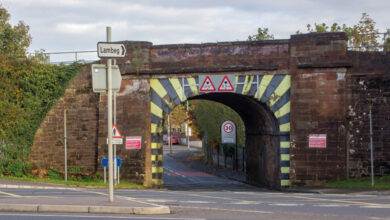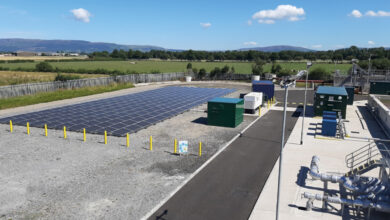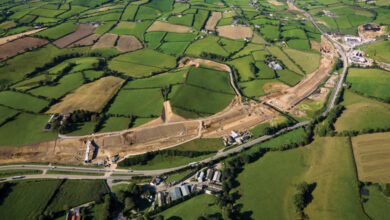Draft Investment Strategy critiques
 agendaNi sums up critiques of the draft Investment Strategy and proposals for improvement from environmentalist, business and trade union perspectives.
agendaNi sums up critiques of the draft Investment Strategy and proposals for improvement from environmentalist, business and trade union perspectives.
Sustainability is being re-defined to mean financial survival rather than real joinedup thinking on the environment, economy and society, according to academic John Barry. A politics lecturer at Queen’s University Belfast, Barry is also a Green Party councillor in North Down and shared this critique of the draft Investment Strategy with agendaNi.
The Executive’s attitude focuses on “financially sustainability in an orthodox economic sense” but “they don’t understand what sustainability means [and] are using the word in a political way.” That said, the strategy carries a real financial risk for society. Building more roads “simply increases our dependence on oil, which is certainly going to be see-sawing in terms of price shocks.”
In his view, the draft strategy does not contain any “innovative thinking outside the box” on raising revenue (e.g. by avoiding water charges again). It notes that some more developed regions have created infrastructure banks to attract investors but the Executive will only “consider this matter further in the coming period.”
He does welcome the attention given to town centre regeneration and the decision to decentralise DARD, although the latter move is “driven as much by political considerations west of the Bann for Sinn Féin.”
Barry is surprised that more investment is not allocated to the agri-food sector, given its potential. He also wants social return on investment to be maximised and a recognition that the economy is in a “depression” not just a recession.
The Green New Deal concept could have been rolled out through a major grid upgrade to cater for renewables and the smart grid and the retro-fitting of existing housing stock: all labour-intensive projects providing shovel-ready jobs which cannot be outsourced. The Construction Employers Federation was “dismayed” at Nelson McCausland’s decision to abandon the policy, partly because it could have boosted employment in the sector.
Official thinking, in his opinion, ranks the private sector first, the public sector second and the social economy third, rather seeing all three as equal. Barry senses an “obsession” with private foreign direct investment and contends that growing unemployment and deepening inequality “means that the conditions that fostered the Troubles are still there.”
The legacy of the past Investment Strategy is also still in place i.e. selling off public property and land, especially former military sites, on the open market for private development.
Tackle inertia: CBI
Public sector decision-making, the CBI says, involves “too many players, too little communication and far too much scope for duplication, delay and political inertia” hence the need to review the structures of government. In its view, the draft strategy sets out a “clear and compelling vision” for Northern Ireland’s infrastructure offering but needs “firmer timescales and commitments”. Two persistent areas of confusion stood out: ministers’ actual plans for capital investment and questions over the accounting models used. Some ministers were “seemingly prevaricating due to fears of negative public opinion”.
Raise revenue: ICTU
The “elephant in the room” is Westminster’s 42 per cent cut in capital funding in the block grant, ICTU comments. The document spends “more time and prose retelling … past achievements than outlining concrete plans for the medium term.” Unions welcomed social benefit clauses and the absence of references to the private finance initiative. However, the draft strategy also fails to acknowledge continued funding from Europe. Revenue-raisers could include a £1 levy on hotel stays, the non-profit distributing model (used in Scotland), tax incremental finance and seeking support from the European Investment Band and European Globalisation Adjustment Fund.





